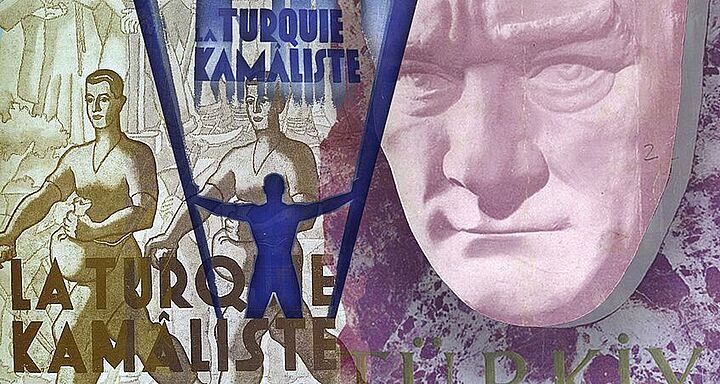Mittwoch, 03. Mai 2023, 18:30 - 20:00 iCal
Ringvorlesung Turkologie 2023SS
Canon, heritage and the nation: Narratives of modernity between past and future in Republican Turkey (1923-2023)
Institut für Orientalistik
Spitalgasse 2, Hof 4.1 (Campus Universität Wien), 1090 Wien
Lecture
100 Years of Kemalisms
Karabekir Akkoyunlu (SOAS, London)
Abstract
At the centenary of the Turkish Republic, 84 years after his passing, and despite two decades under Islamist governments, Mustafa Kemal’s statues still adorn public places. It is still a crime to insult his memory, and any act or statement against him can still provoke a genuine nationwide outcry. This is a level of public sanctity and adulation that very few 20th century leaders have come to enjoy. In fact, as a national symbol, Atatürk and Kemalism, the secular nationalist worldview upheld by self-declared followers of Mustafa Kemal’s path, have been undergoing a renaissance of sorts in recent years, becoming ever more popular. Although it is attractive, and not entirely inaccurate, to read this resurgence in terms of a state vs. society dialectic, as in, state-imposed religiosity triggering a secular societal backlash, this would also be simplistic. For one, it divides history into neatly separated Kemalist and postKemalist eras, ignoring the continuities that run through them, including pragmatic alliances between seemingly irreconcilable political actors. More importantly, it risks treating Turkey in a vacuum: Kemalism and all its prefixed incarnations (anti-, post-, neo-) have emerged in the context of the wider intellectual and political currents of their time. Without this wider context – of post-modernism, neoliberalism and globalisation, as well as their discontents – the latest shift in narratives in Turkey cannot be understood. In this vein, this presentation provides an overview of the origins, evolution and various reinterpretations of Kemalism in changing historico-political circumstances over the past century. It then discusses the intellectual and political context surrounding the rise and decline of the so- called “postKemalist paradigm”. It concludes with questioning the implications of the emergence of “neo” Kemalisms for Turkey’s engagement with the wider world, as well as with its own past, present and future.
Bio
Karabekir Akkoyunlu is a Lecturer at the Department of Politics and International Studies at SOAS University of London, where he convenes the MSc in Politics of the Middle East programme. Previously, he was a visiting scholar at the University of São Paulo, a lecturer at the Getúlio Vargas Foundation (FGV) in Brazil, and a postdoctoral fellow at the University of Graz, Austria. His research interests include comparative politics of democratisation and autocratisation, regime guardianship, and civil-military relations, with a specific focus on Turkey, Iran and Brazil. His recent publications include “The Five Phases of Turkey's Foreign Policy under the AKP” (Social Research, 2021) and “Brazil’s Stealth Military Intervention” (Journal of Politics in Latin America, 2022). His forthcoming monograph, titled Guardianship and Democracy in Iran and Turkey: Tutelary Consolidation, Popular Contestation, will come out from Edinburgh University Press. Karabekir has a BA in History from Brown University, MPhil in International Relations from the University of Cambridge, and a PhD in Government from the London School of Economics.
Zur Webseite der Veranstaltung
Veranstalter
Kontakt
Ayse Dilsiz Hartmuth
Institut für Orientalistik
+43-1-4277-43451
ayse.dilsiz@univie.ac.at
Erstellt am Freitag, 03. Februar 2023, 11:53
Letzte Änderung am Mittwoch, 10. Mai 2023, 10:14

